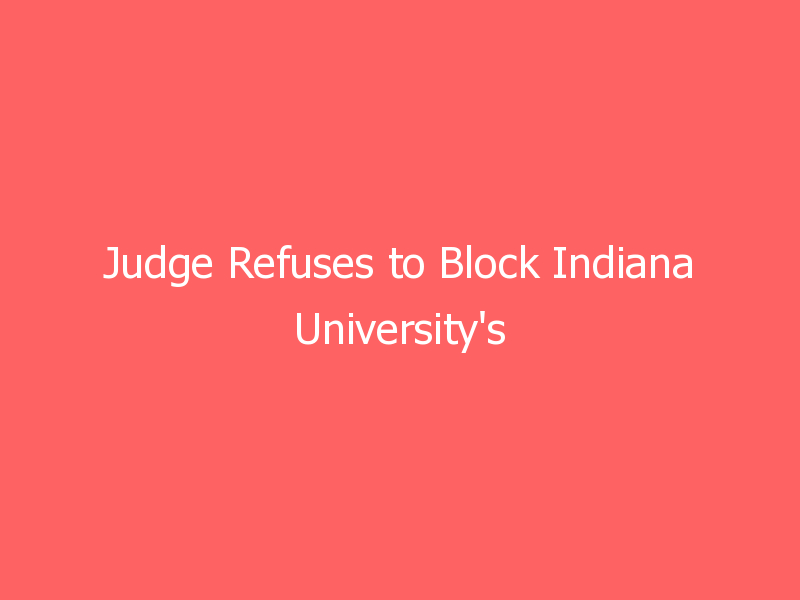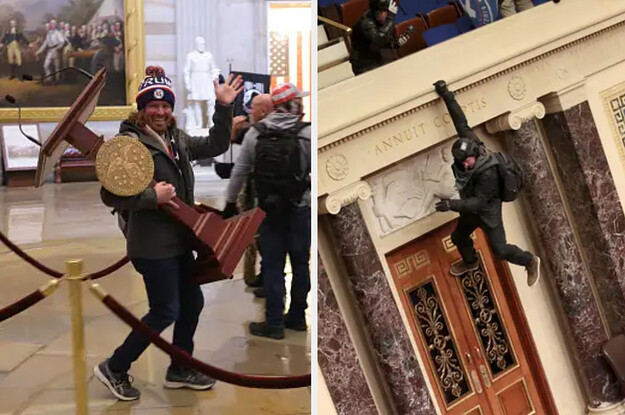Judge Refuses to Block Indiana University’s COVID-19 Vaccine Mandate
A federal judge has denied a request to block Indiana University’s (IU) COVID-19 vaccine mandate after a group of students sued the school, claiming the inoculation requirement is unconstitutional.
Judge Damon R. Leichty, of the U.S. District Court for the Northern District of Indiana, South Bend Division, said in an opinion issued on July 18 (pdf) that the plaintiffs—eight IU students who sued the university over the vaccine mandate—failed to establish “a likelihood of success on the merits of their Fourteenth Amendment due process claim, or that the balance of harms or the public’s interest favors the extraordinary remedy of a preliminary injunction.”
The Fourteenth Amendment, which says no state may “deprive any person of life, liberty, or property, without due process of law,” prevents public universities from mandating vaccines for students unless they can demonstrate they have “rationally pursued a legitimate interest in public health” for their campus communities, the judge wrote.
Leichty wrote that while IU’s vaccine policy “has real implications,” such as potentially depriving students who refuse to get the COVID-19 vaccine or have not qualified for an exemption from attending the university, he argued that students still “have real options” in the face of the policy, including applying for a medical or religious exemption, applying for a medical deferral, attending a different college, or taking classes online.
“Recognizing the significant liberty interests the students retain to refuse unwanted medical treatment, the Fourteenth Amendment permits Indiana University to pursue a reasonable and due process of vaccination in the legitimate interests of public health for its students, faculty, and staff,” Leichty wrote, adding that IU’s COVID-19 vaccine policy “leaves the students with multiple choices, not just forced vaccinations.”
On May 21, IU notified all faculty, staff, and students via email that there would be a requirement to receive a COVID-19 vaccine for the fall semester. Failing to do so will result in students’ class registrations being canceled, their university-issued IDs terminated, and being prohibited from any on-campus activity.
“Approved exemptions will be extremely limited to a very narrow set of criteria,” the university’s website reads. The exemptions include religious exemptions, medical exemptions with documentation or medical deferrals, and an online program exemption—it must be an online program, not simply taking all online classes.
In June, eight students represented by the Bopp Law Firm sued the board of trustees—the IU’s governing body and legal owner—over the mandate.
The lawsuit claims that IU’s vaccine mandate violates the liberty protected by the Fourteenth Amendment, including rights of personal autonomy and bodily integrity and the right to reject medical treatment.
“IU’s Mandate violates the constitutional rights of IU’s students—it requires all IU students without any meaningful exemptions to take the COVID vaccine,” lead counsel James Bopp said in a statement, noting that no government entity and no other Indiana public university requires a COVID-19 vaccination.
“This kind of total disregard for student freedom to choose for themselves, for student’s bodily autonomy, and for the need for voluntary and informed consent cannot stand under the U.S. Constitution,” Bopp added.
The lawsuit also claims that the mandate violates Indiana’s ban on vaccine passports.
Indiana Attorney General Todd Rokita issued an opinion in May (pdf), saying the ban on vaccine passports applies to public colleges and universities because they are “arms of the state.”
IU “unquestionably violates the new law by requiring its students, faculty, and staff to show proof of immunization as a condition of continued attendance or employment,” Rokita wrote in his letter.
In an earlier statement to The Epoch Times, IU spokesperson Chuck Carney said the university’s mandate was put in place “to support a return to safe and more normal operations this fall.”
“The university is confident it will prevail in this case. Following the release of the Indiana attorney general’s opinion, our process was revised, with uploading proof of vaccination no longer required. The attorney general’s opinion affirmed our right to require the vaccine,” Carney continued.
Li Hai contributed to this report.
Follow Tom on Twitter:
Originally found on Epoch Times Read More








